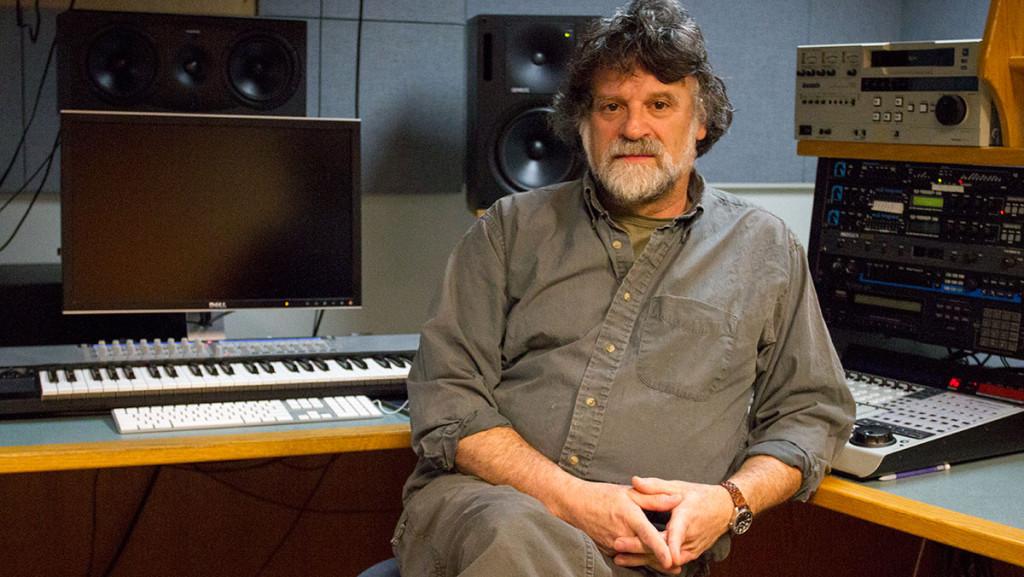Ithaca College’s Faculty Council represents all faculty on campus in issues ranging from academic structure to benefits. Amid predictions of lower salary increments and the news of part-time faculty’s plans for unionizing, the council serves as a body of governance and counsel for its constituents.
Peter Rothbart, professor of music theory, history and composition, has been at the college for 35 years and is in his third year as the chair of Faculty Council.
News Editor Kayla Dwyer spoke with Rothbart about Faculty Council, its relationship with the administration and its response to the most recent issues faculty are facing.
Kayla Dwyer: What would you say is the role of Faculty Council at the college?
Peter Rothbart: We are a governance body in that we pass motions, resolutions … and that’s the part that people see. What people perhaps don’t see is that we are a council, not a Senate. People — faculty, students and staff and administration — come to us asking our thoughts and opinions, asking us to look at things they are doing. They’re looking for our counseling and our advice. The third area, and equally important, is to support faculty and in whatever issues they have when they arise.
KD: Speaking of which, at the all college meeting, the administration seemed to be setting up for low-salary increments for faculty this year. Does Faculty Council represent the faculty on an issue like that?
PR: Faculty Council represents the faculty on any issue that faculty bring forward, and that includes salary. Faculty Council has been on record repeatedly passing motions that salary increments should be, we think, higher than they are. That includes part-time faculty — they haven’t had a raise since ’09. Our last budget input priority was salary increases for part-time faculty.
KD: What happens after you pass a motion? Where does it go from there?
PR: It depends on what the motion is. It gets sent to either the president or the provost or to any of the other administrators that it seems relevant for, and that’s the part people see and that’s the part that’s public. What people don’t see is that there are discussions that go on afterwards. For example, Faculty Council has been pushing for greater contact with the Board of Trustees, and there was a series of letters, discussions and negotiations involving the Faculty Council Executive Committee, the president, myself and the chairman of the board, that people don’t see until we have the result, which is the thing that came out now, that the Faculty Exec. Committee will be meeting twice a year with the board of trustees educational affairs committee, which is historic. That has never happened at this college. I’m not sure how many other colleges that happens at.
KD: Does the provost represent the administration to Faculty Council, or does she represent Faculty Council to the administration?
PR: This was always up in the air, and it became pretty clear last year when the previous provost stated that she is not the faculty’s representative to the administration. She is representing the administration to Faculty Council, I think that’s probably accurate.
KD: For our part-time faculty who have made vocal that they are planning to unionize, what role does Faculty Council play in that process?
PR: It’s important to understand that the two are not in conflict with each other. Faculty Council represents all faculty interests, full time and part time. That does not preclude other faculty groups from organizing and forming and making their wishes heard. In the past three years, we saw that happen in other areas when there were questions about the [Integrative Core Curriculum].
KD: As chair, what is the biggest issue among faculty right now?
PR: I can’t say there’s one biggest issue. I think people are concerned about workload. I think people are concerned about the educational processes on campus — IC 20/20, ICC. Faculty are certainly concerned about salary and benefits. And faculty I think are very concerned about enrollment and the welfare of the college.
KD: Do you have specific goals in mind for the future?
PR: We need to get what goes on at Faculty Council and the issues before us … down to our constituents on a more organized basis. We’re going to publish the agenda ahead of time — it’s very difficult to do, but we’re going to try and do that. We’ve resurrected the Faculty Staff Benefits Committee, where we work with Human Resources to discuss and influence benefits decisions. HR has indicated an eagerness to work with the committee. We’re setting up a Sakai site that will be a master list of all all-college committees so that if people have a question, there is one place to go for the information. … There’s got to be some sort of central place at least to gain access to the information. We’ve got this wonderful Internet, let’s use it.








